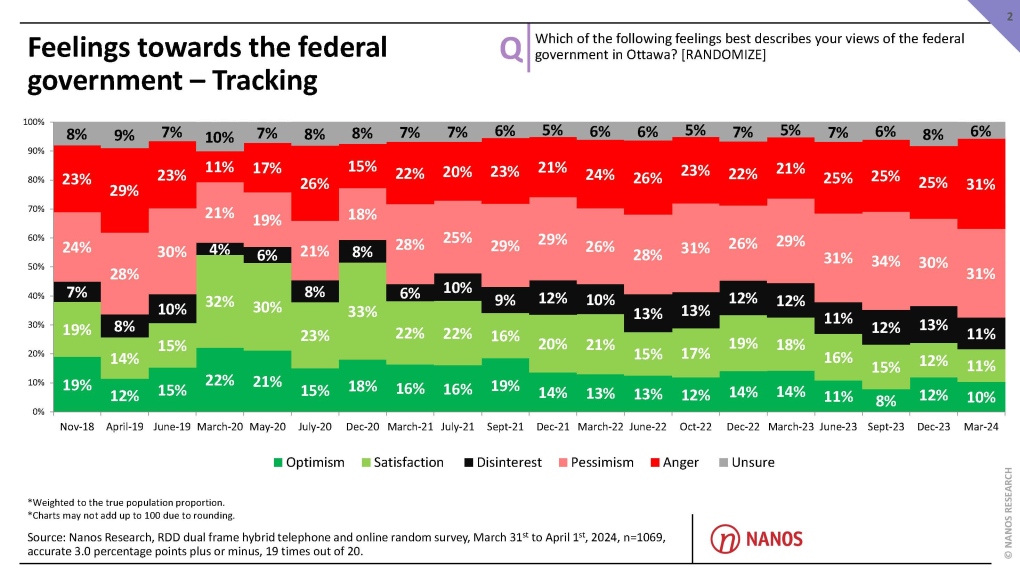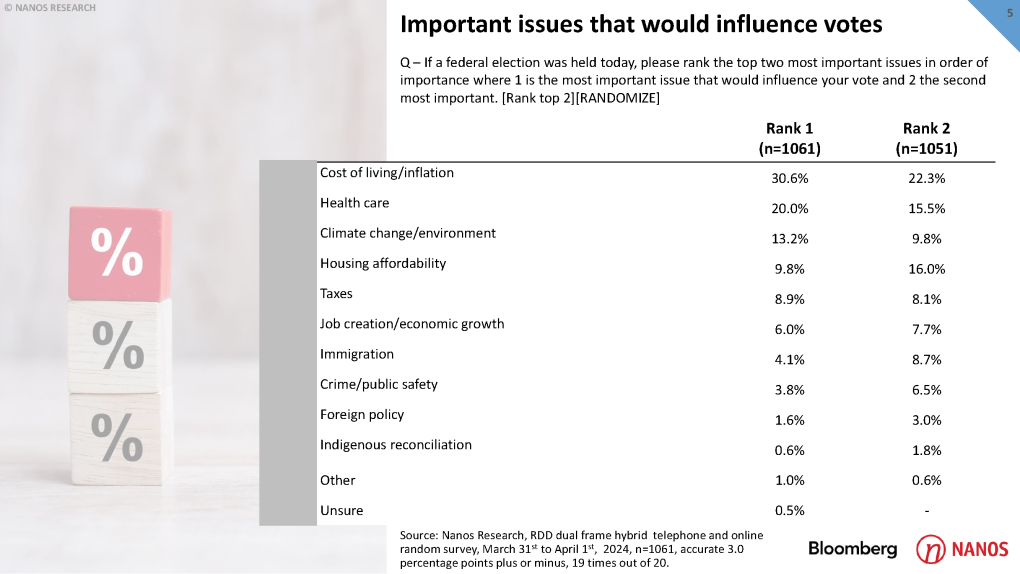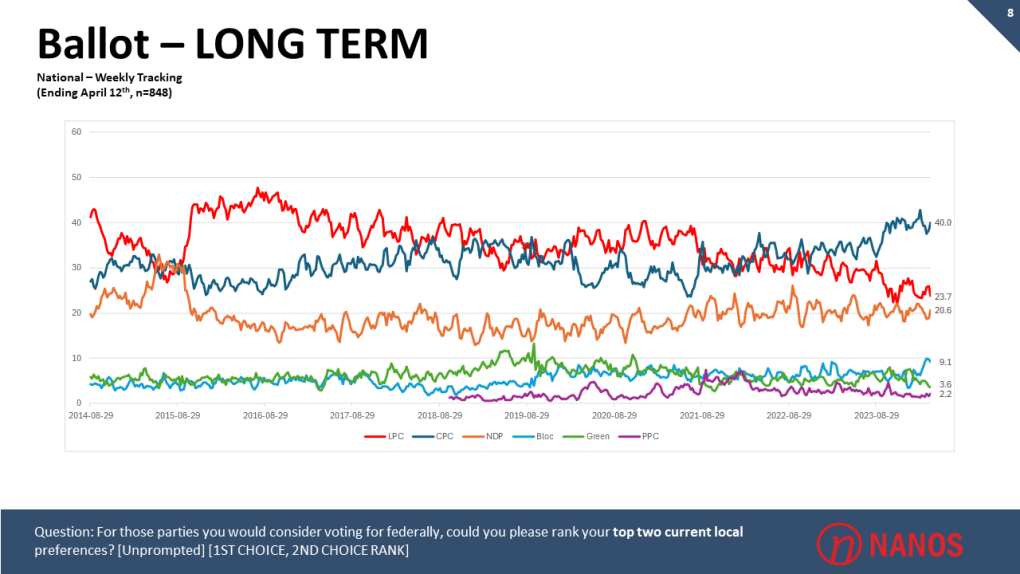Politics
Politics Briefing: Canada sanctions over 200 people loyal to Putin in eastern Ukraine – The Globe and Mail

Hello,
Canada has imposed sanctions on more than 200 people who are loyal to Russian President Vladimir Putin in Ukraine’s eastern Donbas region.
Global Affairs Canada says the new measures target 11 senior officials and 192 other members of the People’s Councils of the self-proclaimed People’s Republics of Luhansk and Donetsk for supporting Putin’s attack on the area.
There are more details here.
Prime Minister Justin Trudeau, asked about the new sanctions on Wednesday morning, said unity across the West will continue to put pressure on anyone who supported Russian President Vladimir Putin.
“We are all looking at ways of moving forward and every conversation we have is about how we can do more as Western countries to demonstrate that Vladimir Putin made a terrible mistake,” Mr. Trudeau told the media as he arrived for a caucus meeting. “He needs to lose and anyone who supports him needs to face severe consequences.”
Meanwhile, senior parliamentary reporter Steven Chase reports here the Canadian government plans to give itself the power to sell off assets of foreigners seized under sanctions law, and then turn them over to affected victims or pay for rebuilding war-torn countries. The change would make Canada the first among Group of Seven countries to allow such actions.
This is the daily Politics Briefing newsletter, written by Ian Bailey. It is available exclusively to our digital subscribers. If you’re reading this on the web, subscribers can sign up for the Politics newsletter and more than 20 others on our newsletter signup page. Have any feedback? Let us know what you think.
TODAY’S HEADLINES
BULLYING AND HARASSAMENT IN THE CRA – A team of psychological consultants hired by the Canada Revenue Agency found that a division responsible for working with multinational firms on global tax enforcement is rife with bullying and harassment and most of the staff feel their unit is ineffective. Story here.
ALL-TIME HIGH OF WORKING-AGE CANADIANS CLOSE TO RETIREMENT – More than one in five Canadians of working age are close to retirement, an all-time high that will have major ripple effects on the country’s economy, labour market and health care system, according to 2021 census details released by Statistics Canada on Wednesday. Story here.
TORIES SEEK RCMP INVESTIGATION OF PM’S AGA KHAN VACATION – Opposition Conservatives are asking the RCMP to pursue a criminal investigation into Prime Minister Justin Trudeau’s trip to the Aga Khan’s private island six years ago, saying there’s new evidence. Story here Meanwhile the Prime Minister told Parliament, on Tuesday, that he did not authorize himself to take his family on an exclusive vacation at the Aga Khan’s private island in the Bahamas in 2016. Story here.
LAW ENFORCEMENT NEEDED EMERGENCIES ACT: MENDICINO – The Liberal government invoked the never-before-used Emergencies Act because law enforcement advised that existing authorities were ineffective to restore public safety during blockades at ports of entry, Public Safety Minister Marco Mendicino said on Tuesday evening. Story here.
QUEBEC AS LOUISIANA?: LEGAULT – Two newly formed political parties would prefer Quebec be bilingual, a move that is a sure ticket to becoming a new Louisiana, Premier François Legault said Tuesday. Story here.
FEDERAL COURT RULES AGAINST FEDERAL B.C. FISH FARM ORDER – A Federal Court judge has set aside a Department of Fisheries order that would have phased out fish farming in British Columbia’s Discovery Islands. Story here.
ALBERTA PLANS TO PROMOTE ITSELF IN U.S. – New documents reveal details of a multimillion-dollar plan from the province of Alberta to promote itself in the United States and expand its international diplomacy in an era of tension over energy policy. Story here from CBC.
LIGHT SHED ON FUNDRAISING DETAILS FOR RACE TO BE MANTOBA PREMIER – Former federal cabinet minister Shelly Glover came close last fall to becoming Manitoba’s premier with a third of the donations of the eventual winner, Heather Stefanson. Story here from CBC.
CONSERVATIVE LEADERSHIP RACE
SMALLER THAN USUAL CROWD FOR POILIEVRE – After rallies with crowds of hundreds or thousands in attendance, Pierre Poilievre, on Tuesday night, made his case for leading the federal Tories to a smaller crowd. Only about 200 were in attendance for a meet and greet held at a Gatineau hotel. Still, the crowd was lively, and many lined up for photos with the candidate after his remarks. The Poilievre campaign has yet to respond to Politics newsletter questions about the turnout. Mr. Poilievre asked for a show of hands for card-carrying Conservatives in the group. Most raised their hands. The candidate is holding a similar event in Brockville, Ont., on Wednesday night.
BABER IS IN – Roman Baber, an independent member of the Ontario legislature now seeking the Tory leadership, announced Wednesday he has submitted $300,000 to the Conservative Party of Canada alongside the required signatures from party members to warrant appearing on the ballot for the leadership race.
CHAREST VS. POILIEVRE ON THE ENVIRONMENT – Two high-profile candidates in the race to lead the federal Conservatives touted their climate change credentials on Tuesday, with Jean Charest releasing his environmental plan and Pierre Poilievre saying he would look at reviving some energy projects blocked by the Liberal government. Story here.
THIS AND THAT
TODAY IN THE COMMONS – Projected Order of Business at the House of Commons, April. 27, accessible here.
FREELAND AT ALBRIGHT FUNERAL – Deputy Prime Minister Chrystia Freeland was in Washington on Wednesday and scheduled to attend the funeral of the former United States secretary of state, Madeleine Albright at the Washington National Cathedral. U.S. President Joe Biden spoke at the ceremony. Ms. Albright was secretary of state from 1997 to 2001 under former president Bill Clinton. She died last month, aged 84.
HATE IN THE SPOTLIGHT AT COMMITTEE HEARING – House of Commons committee meetings on Wednesday include the Standing Committee on Canadian Heritage gathering to hear witnesses on the “History of and Current Display of Hate Symbols and Emblems in Canada.” Witnesses include leaders from the Canadian Anti-Hate Network, Centre for Israel and Jewish Affairs, the Friends of Simon Wiesenthal Center for Holocaust Studies and the Hindu Federation. The notice, including instructions for watching online, is here. Notices of all meetings are here.
BQ MP HAS COVID-19 – Bloc Québécois MP Maxime Blanchette-Joncas, who represents Rimouski-Neigette—Témiscouata—Les Basques, has tested positive for COVID-19 with a rapid test. He is in isolation at home, according to a party statement.
THE DECIBEL
On Wednesday’s edition of The Globe and Mail podcast, The Globe’s technology reporter, Temur Durrani, talks about who is financing Elon Musk’s deal to buy Twitter, the social media platform, for US$44-billion as well as what Twitter’s users and advertisers think of it, and why it matters even if you’ve never written a single tweet. The Decibel is here.
PRIME MINISTER’S DAY
The Prime Minister held private meetings, attended the Liberal caucus meeting, was scheduled to attend Question Period and a reception hosted by Canada’s Building Trades Unions where he was to deliver remarks.
LEADERS
Bloc Québécois Leader Yves-François Blanchet attends Question Period.
Conservative Leader Candace Bergen attended the Conservative caucus meeting, and Question Period.
NDP Leader Jagmeet Singh attended the NDP national caucus meeting, was scheduled to hold a media availability and participate in Question Period. In the evening, Mr. Singh was scheduled to attend the 22nd annual conference of the Association québécoise de la production médiatique , which advises, represents and supports independent production companies in film, television and the web, and present an award.
PUBLIC OPINION
TORIES LEADING LIBERALS IN NEW POLL – The Conservative Party of Canada has opened up a “statistically significant” lead over the governing Liberals, the latest polling from Nanos Research shows. Story here from CTV
OPINION
The Globe and Mail Editorial Board on how the subject of the Rouleau inquiry is the Trudeau government, not the truckers: “It’s all too apparent that the Trudeau government doesn’t want the inquiry to focus too much on its decision to invoke the Emergencies Act on Feb. 14. What it appears to want is for the inquiry to put as much public attention on those who organized and took part in the trucker convoy that turned Parliament Hill into a giant parking lot for weeks on end. And that is wrong.”
Lawrence Martin (The Globe and Mail) on how the left is losing the language war: “The word “woke” used to have a positive connotation. It originated in Black culture and took on a more common, mainstream usage following the killing of Black teenager Michael Brown in Ferguson, Mo., in 2014. To be woke meant to be socially progressive, with an acute awareness of social injustices. Then, in the United States, Canada and elsewhere, the word woke was co-opted, hijacked by the political right and turned into a broad-sweep putdown of anyone with politically correct liberal values. Woke was newly reserved for lefty intellectuals and tree huggers, sushi eaters and faculty lounge highbrows, New York Times readers and the like.”
Diane Bellemare (Contributed to The Globe and Mail) on how a basic income would be an unfair, complicated and costly way to eliminate poverty: “There is much to say about Bill S-233 tabled in the Senate. The bill – which proposes to oblige the federal Minister of Finance to develop a national framework to implement an unconditional guaranteed basic income program (GBI), unconditionally guaranteeing sufficient income (equivalent to or near the low-income threshold) for all Canadian citizens over age 17, as well as Canadian residents, refugees and temporary workers – strives to eliminate poverty and establish social equity. These are laudable goals. There is also no doubt about the positive effects of a stable basic income on an individual’s physical and mental health, as ample research has demonstrated.”
Noura Kevorkian (Contributed to The Globe and Mail) on how the Syrian refugee crisis still requires our urgent attention: “As the world rightfully focuses its attention on the current war in Ukraine and the displacement of millions of refugees, I notice how the focus has shifted off of Syrians. This year marks the 11th anniversary of the start of the Syrian refugee crisis. Since the beginning of the revolution in March, 2011, thousands have been killed, with families and a nation torn apart. With more than six million refugees, it remains one of the largest forced human migrations of our time, along with seven million displaced internally in Syria. This conflict is not being as widely reported in the media these days, but it is certainly just as deserving.”
Rob Shaw (The Orca) on how John Horgan’s F bomb in the B.C legislature raises questions about the premier’s future: “The quick apology, and the humorous deflection, will likely be enough to cauterize any lasting political wound from the incident. For some, seeing the premier drop an f-bomb in the chamber may even be a relatable moment, mirroring how they often react privately to seeing the shenanigans by politicians in Victoria or Ottawa. Eventually, BC New Democrats will get around to spinning the entire affair into a positive light, suggesting this was exactly the kind of folksy “Premier Dad” moment that holds Horgan so high in public opinion polls. But make no mistake – everyone, on both sides the house, was surprised at the Premier’s poor performance on Monday. I suspect, even himself. Horgan looks tired and spent. His quick apology will save him this time. But it will only accelerate quiet chatter in the legislature about whether his retirement is near.”
Got a news tip that you’d like us to look into? E-mail us at tips@globeandmail.com. Need to share documents securely? Reach out via SecureDrop.
Politics
Politics Briefing: Labour leader targets Poilievre, calls him 'anti-worker politician' – The Globe and Mail

Hello,
Pierre Poilievre is a fraud when it comes to empowering workers, says the president of Canada’s largest labour organization.
Bea Bruske, president of the Canadian Labour Congress, targeted the federal Conservative Leader in a speech in Ottawa today as members of the labour movement met to develop a strategic approach to the next federal election, scheduled for October, 2025.
“Whatever he claims today, Mr. Poilievre has a consistent 20-year record as an anti-worker politician,” said Bruske, whose congress represents more than three million workers.
She rhetorically asked whether the former federal cabinet minister has ever walked a picket line, or supported laws to strengthen workers’ voices.
“Mr. Poilievre sure is fighting hard to get himself power, but he’s never fought for worker power,” she said.
“We must do everything in our power to expose Pierre Poilievre as the fraud that he is.”
The Conservative Leader, whose party is running ahead of its rivals in public-opinion polls, has declared himself a champion of “the common people,” and been courting the working class as he works to build support.
Mr. Poilievre’s office today pushed back on the arguments against him.
Sebastian Skamski, media-operations director, said Mr. Poilievre, unlike other federal leaders, is connecting with workers.
In a statement, Skamski said NDP Leader Jagmeet Singh has sold out working Canadians by co-operating with the federal Liberal government, whose policies have created challenges for Canadian workers with punishing taxes and inflation.
“Pierre Poilievre is the one listening and speaking to workers on shop floors and in union halls from coast to coast to coast,” said Mr. Skamski.
Prime Minister Justin Trudeau and Mr. Singh are scheduled to speak to the gathering today. Mr. Poilievre was not invited to speak.
Asked during a post-speech news conference about the Conservative Leader’s absence, Bruske said the gathering is focused on worker issues, and Poilievre’s record as an MP and in government shows he has voted against rights, benefits and wage increases for workers.
“We want to make inroads with politicians that will consistently stand up for workers, and consistently engage with us,” she said.
This is the daily Politics Briefing newsletter, written by Ian Bailey. It is available exclusively to our digital subscribers. If you’re reading this on the web, subscribers can sign up for the Politics newsletter and more than 20 others on our newsletter signup page. Have any feedback? Let us know what you think.
TODAY’S HEADLINES
Pierre Poilievre’s top adviser not yet contacted in Lobbying Commissioner probe: The federal Lobbying Commissioner has yet to be in touch with Jenni Byrne as the watchdog probes allegations of inappropriate lobbying by staff working both in Byrne’s firm and a second one operating out of her office.
Métis groups will trudge on toward self-government as bill faces another setback: Métis organizations in Ontario and Alberta say they’ll stay on the path toward self-government, despite the uncertain future of a contentious bill meant to do just that.
Liberals buck global trend in ‘doubling down’ on foreign aid, as sector urges G7 push: The federal government pledged in its budget this week to increase humanitarian aid by $150-million in the current fiscal year and $200-million the following year.
Former B.C. finance minister running for the federal Conservatives: Mike de Jong says he will look to represent the Conservatives in Abbotsford-South Langley, which is being created out of part of the Abbotsford riding now held by departing Tory MP Ed Fast.
Ottawa’s new EV tax credit raises hope of big new Honda investment: The proposed measure would provide companies with a 10-per-cent rebate on the costs of constructing new buildings to be used in the electric-vehicle supply chain. Story here.
Sophie Grégoire Trudeau embraces uncertainty in new memoir, Closer Together: “I’m a continuous, curious, emotional adventurer and explorer of life and relationships,” Grégoire Trudeau told The Globe and Mail during a recent interview. “I’ve always been curious and interested and fascinated by human contact.”
TODAY’S POLITICAL QUOTES
“Sometimes you’re in a situation. You just can’t win. You say one thing. You get one community upset. You say another. You get another community upset.” – Ontario Premier Doug Ford, at a news conference in Oakville today, commenting on the Ontario legislature Speaker banning the wearing in the House of the traditional keffiyeh scarf. Ford opposes the ban, but it was upheld after the news conference in the provincial legislature.
“No, I plan to be a candidate in the next election under Prime Minister Trudeau’s leadership. I’m very happy. I’m excited about that. I’m focused on the responsibilities he gave me. It’s a big job. I’m enjoying it and I’m optimistic that our team and the Prime Minister will make the case to Canadians as to why we should be re-elected.” – Public Safety Minister Dominic LeBlanc, before Question Period today, on whether he is interested in the federal Liberal leadership, and succeeding Justin Trudeau as prime minister.
THIS AND THAT
Today in the Commons: Projected Order of Business at the House of Commons, April. 18, accessible here.
Deputy Prime Minister’s Day: Private meetings in Burlington, Ont., then Chrystia Freeland toured a manufacturing facility, discussed the federal budget and took media questions. Freeland then travelled to Washington, D.C., for spring meetings of the International Monetary Fund and the World Bank Group. Freeland also attended a meeting of the Five Eyes Finance Ministers hosted by U.S. Treasury Secretary Janet Yellen, and held a Canada-Ukraine working dinner on mobilizing Russian assets in support of Ukraine.
Ministers on the Road: Foreign Affairs Minister Mélanie Joly is on the Italian island of Capri for the G7 foreign ministers’ meeting. Heritage Minister Pascale St-Onge, in the Quebec town of Farnham, made an economic announcement, then held a brief discussion with agricultural workers and took media questions. Privy Council President Harjit Sajjan made a federal budget announcement in the Ontario city of Welland. Families Minister Jenna Sudds made an economic announcement in the Ontario city of Belleville.
Commons Committee Highlights: Treasury Board President Anita Anand appeared before the public-accounts committee on the auditor-general’s report on the ArriveCan app, and Karen Hogan, Auditor-General of Canada, later appeared on government spending. Crown-Indigenous Relations Minister Gary Anandasangaree appears before the status-of-women committee on the Red Dress Alert. Competition Bureau Commissioner Matthew Boswell and Yves Giroux, the Parliamentary Budget Officer, appeared before the finance committee on Bill C-59. Former Prince Edward Island premier Robert Ghiz, now the president and chief executive officer of the Canadian Telecommunications Association, is among the witnesses appearing before the human-resources committee on Bill C-58, An act to amend the Canada Labour Code. Caroline Maynard, Canada’s Information Commissioner, appears before the access-to-information committee on government spending. Michel Patenaude, chief inspector at the Sûreté du Québec, appeared before the public-safety committee on car thefts in Canada.
In Ottawa: Governor-General Mary Simon presented the Governor-General’s Literary Awards during a ceremony at Rideau Hall, and, in the evening, was scheduled to speak at the 2024 Indspire Awards to honour Indigenous professionals and youth.
PRIME MINISTER’S DAY
Justin Trudeau met with Ottawa Mayor Mark Sutcliffe at city hall. Sutcliffe later said it was the first time a sitting prime minister has visited city hall for a meeting with the mayor. Later, Trudeau delivered remarks to a Canada council meeting of the Canadian Labour Congress.
LEADERS
Bloc Québécois Leader Yves-François Blanchet held a media scrum at the House of Commons ahead of Question Period.
Conservative Leader Pierre Poilievre attends a party fundraising event at a private residence in Mississauga.
Green Party Leader Elizabeth May attended the House of Commons.
NDP Leader Jagmeet Singh, in Ottawa, met with Saskatchewan’s NDP Leader, Carla Beck, and, later, Ken Price, the chief of the K’ómoks First Nation,. In the afternoon, he delivered a speech to a Canadian Labour Congress Canadian council meeting.
THE DECIBEL
On today’s edition of The Globe and Mail podcast, Sanjay Ruparelia, an associate professor at Toronto Metropolitan University and Jarislowsky Democracy Chair, explains why India’s elections matter for democracy – and the balance of power for the rest of the world. The Decibel is here.
PUBLIC OPINION
Declining trust in federal and provincial governments: A new survey finds a growing proportion of Canadians do not trust the federal or provincial governments to make decisions on health care, climate change, the economy and immigration.
OPINION
On Haida Gwaii, an island of change for Indigenous land talks
“For more than a century, the Haida Nation has disputed the Crown’s dominion over the land, air and waters of Haida Gwaii, a lush archipelago roughly 150 kilometres off the coast of British Columbia. More than 20 years ago, the First Nation went to the Supreme Court of Canada with a lawsuit that says the islands belong to the Haida, part of a wider legal and political effort to resolve scores of land claims in the province. That case has been grinding toward a conclusion that the B.C. government was increasingly convinced would end in a Haida victory.” – The Globe and Mail Editorial Board.
The RCMP raid the home of ArriveCan contractor as Parliament scolds
“The last time someone was called before the bar of the House of Commons to answer MPs’ inquiries, it was to demand that a man named R.C. Miller explain how his company got government contracts to supply lights, burners and bristle brushes for lighthouses. That was 1913. On Wednesday, Kristian Firth, the managing partner of GCStrategies, one of the key contractors on the federal government’s ArriveCan app, was called to answer MPs’ queries. Inside the Commons, it felt like something from another century.” – Campbell Clark
First Nations peoples have lost confidence in Thunder Bay’s police force
“Thunder Bay has become ground zero for human-rights violations against Indigenous Peoples in Canada. Too many sudden and suspicious deaths of Indigenous Peoples have not been investigated properly. There have been too many reports on what is wrong with policing in the city – including ones by former chair of the Truth and Reconciliation Commission Murray Sinclair and former Toronto Police board chair Alok Mukherjee, and another one called “Broken Trust,” in which the Office of the Independent Police Review Director said the Thunder Bay Police Service (TBPS) was guilty of “systemic racism” in 2018. – Tanya Talaga.
The failure of Canada’s health care system is a disgrace – and a deadly one
“What can be said about Canada’s health care system that hasn’t been said countless times over, as we watch more and more people suffer and die as they wait for baseline standards of care? Despite our delusions, we don’t have “world-class” health care, as our Prime Minister has said; we don’t even have universal health care. What we have is health care if you’re lucky, or well connected, or if you happen to have a heart attack on a day when your closest ER is merely overcapacity as usual, and not stuffed to the point of incapacitation.” – Robyn Urback.
Got a news tip that you’d like us to look into? E-mail us at tips@globeandmail.com. Need to share documents securely? Reach out via SecureDrop.
Politics
GOP strategist reacts to Trump’s ‘unconventional’ request – CNN


GOP strategist reacts to Trump’s ‘unconventional’ request
Donald Trump’s campaign is asking Republican candidates and committees using the former president’s name and likeness to fundraise to give at least 5% of what they raise to the campaign, according to a letter obtained by CNN. CNN’s Steve Contorno and Republican strategist Rina Shah weigh in.
Politics
Anger toward federal government at 6-year high: Nanos survey – CTV News


Most Canadians in March reported feeling angry or pessimistic towards the federal government than at any point in the last six years, according to a survey by Nanos Research.
Nanos has been measuring Canadians’ feelings of optimism, satisfaction, disinterest, anger, pessimism and uncertainty toward the federal government since November 2018.
The latest survey found that optimism had crept up slightly to 10 per cent since hitting an all-time low of eight per cent in September 2023.
However, 62 per cent of Canadians said they feel either pessimistic or angry, with respondents equally split between the two sentiments.
(Nanos Research)
“What we’ve seen is the anger quotient has hit a new record,” Nik Nanos, CTV’s official pollster and Nanos Research founder, said in an interview with CTV News’ Trend Line on Wednesday.
Only 11 per cent of Canadians felt satisfied, while another 11 per cent said they were disinterested.
Past survey results show anger toward the federal government has increased or held steady across the country since March 2023, while satisfaction has gradually declined.
Will the budget move the needle?
Since the survey was conducted before the federal government released its 2024 budget, there’s a chance the anger and pessimism of March could subside a little by the time Nanos takes the public’s temperature again. They could also stick.
The five most important issues to Canadians right now that would influence votes, according to another recent Nanos survey conducted for Bloomberg, include inflation and the cost of living, health care, climate change and the environment, housing affordability and taxes.


With this year’s budget, the federal government pledged $52.9 billion in new spending while promising to maintain the 2023-24 federal deficit at $40.1 billion. The federal deficit is projected to be $39.8 billion in 2024-25.
The budget includes plans to boost new housing stock, roll out a national disability benefit, introduce carbon rebates for small businesses and increase taxes on Canada’s top-earners.
However, advocacy groups have complained it doesn’t do enough to address climate change, or support First Nations communities and Canadians with disabilities.
“Canada is poised for another disastrous wildfire season, but this budget fails to give the climate crisis the attention it urgently deserves,” Keith Brooks, program director for Environmental Defence, wrote in a statement on the organization’s website.
Meanwhile, when it comes to a promise to close what the Assembly of First Nations says is a sprawling Indigenous infrastructure gap, the budget falls short by more than $420 billion. And while advocacy groups have praised the impending roll-out of the Canada Disability Benefit, organizations like March of Dimes Canada and Daily Bread Food Bank say the estimated maximum benefit of $200 per month per recipient won’t be enough to lift Canadians with disabilities out of poverty.
According to Nanos, if Wednesday’s budget announcement isn’t enough to restore the federal government’s favour, no amount of spending will do the trick.
“If the Liberal numbers don’t move up after this, perhaps the listening lesson for the Liberals will be (that) spending is not the political solution for them to break this trend line,” Nanos said. “It’ll have to be something else.”
Conservatives in ‘majority territory’
While the Liberal party waits to see what kind of effect its budget will have on voters, the Conservatives are enjoying a clear lead when it comes to ballot tracking.


“Any way you cut it right now, the Conservatives are in the driver’s seat,” Nanos said. “They’re in majority territory.”
According to Nanos Research ballot tracking from the week ending April 12, the Conservatives are the top choice for 40 per cent of respondents, the Liberals for 23.7 per cent and the NDP for 20.6 per cent.
Whether the Liberals or the Conservatives form the next government will come down, partly, to whether voters believe more government spending is, or isn’t, the key to helping working Canadians, Nanos said.
“Both of the parties are fighting for working Canadians … and we have two competing visions for that. For the Liberals, it’s about putting government support into their hands and creating social programs to support Canadians,” he said.
“For the Conservatives, it’s very different. It’s about reducing the size of government (and) reducing taxes.”
Watch the full episode of Trend Line in our video player at the top of this article. You can also listen in our audio player below, or wherever you get your podcasts. The next episode comes out Wednesday, May 1.
Methodology
Nanos conducted an RDD dual frame (land- and cell-lines) hybrid telephone and online random survey of 1,069 Canadians, 18 years of age or older, between March 31 and April 1, 2024, as part of an omnibus survey. Participants were randomly recruited by telephone using live agents and administered a survey online. The sample included both land- and cell-lines across Canada. The results were statistically checked and weighted by age and gender using the latest census information and the sample is geographically stratified to be representative of Canada. The margin of error for this survey is ±3.0 percentage points, 19 times out of 20.
With files from The Canadian Press, CTV News Senior Digital Parliamentary Reporter Rachel Aiello and CTV News Parliamentary Bureau Writer, Producer Spencer Van Dyke
-



 Investment17 hours ago
Investment17 hours agoUK Mulls New Curbs on Outbound Investment Over Security Risks – BNN Bloomberg
-



 Sports15 hours ago
Sports15 hours agoAuston Matthews denied 70th goal as depleted Leafs lose last regular-season game – Toronto Sun
-
Business14 hours ago
BC short-term rental rules take effect May 1 – CityNews Vancouver
-
Art14 hours ago
Collection of First Nations art stolen from Gordon Head home – Times Colonist
-



 Investment14 hours ago
Investment14 hours agoBenjamin Bergen: Why would anyone invest in Canada now? – National Post
-



 Tech16 hours ago
Tech16 hours agoSave $700 Off This 4K Projector at Amazon While You Still Can – CNET
-



 Tech15 hours ago
Tech15 hours ago'Kingdom Come: Deliverance II' Revealed In Epic New Trailer And It Looks Incredible – Forbes
-



 Science17 hours ago
Science17 hours agoJeremy Hansen – The Canadian Encyclopedia










